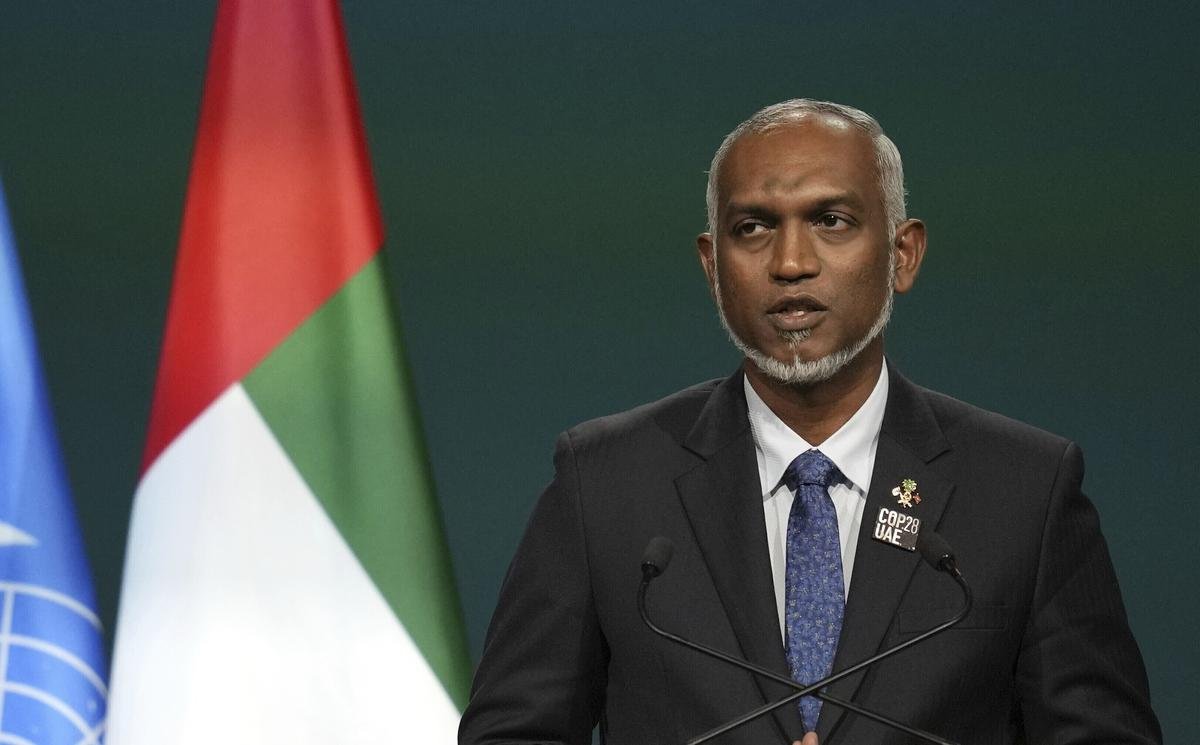MALE, Sept 9 (AP): Voting started in the Maldives presidential election Saturday, a virtual
referendum over which regional power — India or China — will have the biggest influence in the
Indian Ocean archipelago state.
Eight candidates are vying for the post, with current President Ibrahim Mohamed Solih — perceived
as pro-India — fighting his main rival, Mohamed Muiz.
Solih is seeking re-election for a second term and is battling allegations by Muiz that he had allowed
India an unchecked presence in the country.
Muiz has promised that if he wins the presidency, he would remove Indian troops stationed in the
Maldives and balance the country’s trade relations, which he said, is heavily in India’s favour.
The People’s National Congress, Muiz’s party, is viewed as heavily pro-China. Its leader, Abdullah
Yameen, when he was president from 2013-2018, made the Maldives a part of China’s Belt and Road
Initiative (BRI). It envisages building ports, railways, and roads to expand trade — and China’s
influence — in swathes across Asia, Africa, and Europe.
Mohamed Shareef, a senior official for Muiz’s party, told The Associated Press that the removal of
Indian military personnel was a “non-negotiable” position for the party. He said that the number of
Indian troops and their activities are hidden from Maldivians and that they have near-exclusive use
of certain parts and airports in the country.
Both India and China vie for influence in the tiny archipelago state made up of some 1,200 coral
islands in the Indian Ocean, located by the main shipping route between East and the West.
Solih was considered the front-runner in the field of eight candidates since his strongest rival,
Yameen, was blocked from running by the Supreme Court because he is in prison for corruption and
money laundering convictions.
Muiz hoped to take advantage of a split in Solih’s Maldivian Democratic Party that led Mohamed
Nasheed, a charismatic former president, to break away and field his own candidate.
Sahida Saeed, a university student who was voting in the Maldives Embassy in Sri Lanka, said she
expects a leader who can take care of the current issues. “Due to the population increase, the
employment rates are at risk (of decreasing). So, I hope that in the future those issues are
addressed,” she said.
“Indian influences are a threat to us since military bases are coming to Maldives. And I don’t believe
that any other country’s military forces should come to our country and try to take over,” said Isaq
Nuhan, a schoolteacher, also voting at Colombo.
Nasheed is currently backing Ilyas Labeeb who, though not highly critical of India, has accused Solih
of not being transparent in his dealings with New Delhi, said Azim Zahir, a political science and
international relations lecturer at the University of Western Australia.
The ‘India Out’ campaign — spearheaded by Muiz’s party — has been all over social media in the run
up to the election and almost all candidates, except Solih, adopted the “India versus the rest”
rhetoric, said Zahir.
Solih is widely credited for having brought stability to the country and adeptly handling the COVID-
19 health crisis, which can work in his advantage, added Zahir.
He said that Solih has no corruption allegations against him, unlike Muiz, who had served as a
housing minister.
There is also a possibility that the mostly Sunni Muslim nation could become more socially
conservative because both sides are backed by religious hard-liners. The groups are not known to
espouse violence but want more control over women, are against music and art as well as religious
freedom, Zahir said.
The Maldives is believed to have sent the highest number of fighters per capita when the Islamic
State group was active. A local group with the IS ideology set off a bomb targeting Nasheed in 2021,
seriously wounding him.
More than 282,000 people are eligible to vote in Saturday’s election. A candidate would need to get
50 per cent plus one vote to win outright. Otherwise, the top two finishers would meet in a runoff
election later this month. (AP)







